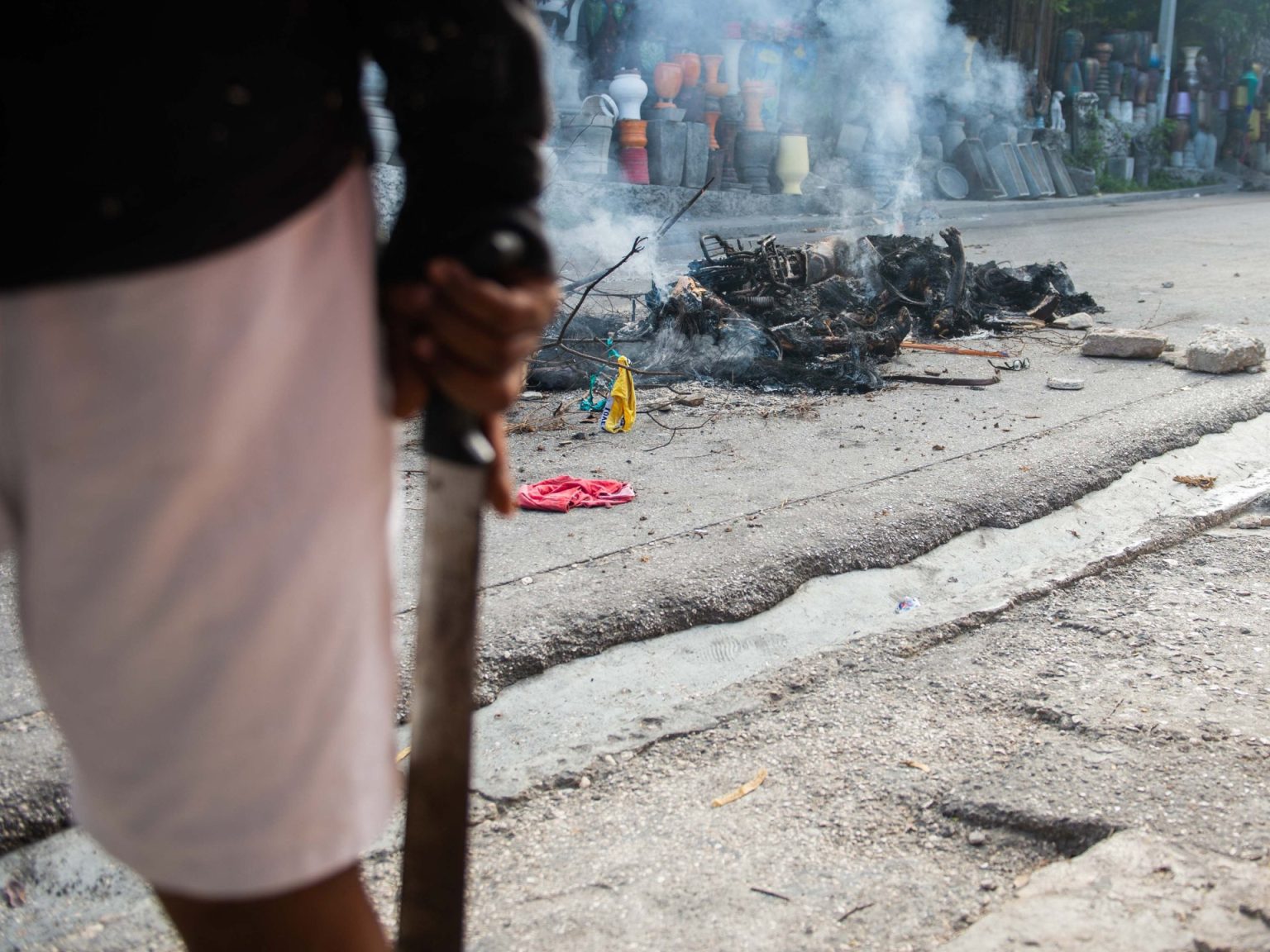The impoverished Cite Soleil slum in Port-au-Prince, Haiti, became a scene of unspeakable horror over the weekend as a gang leader, Monel “Mikano” Felix, unleashed a brutal massacre, claiming the lives of at least 110 elderly residents. The National Human Rights Defence Network (RNDDH) reported that the killings were orchestrated by Felix in a twisted act of vengeance fueled by superstition. The gang leader, distraught over the illness and subsequent death of his child, reportedly consulted a Voodoo priest who attributed the child’s demise to witchcraft practiced by elderly individuals within the community. This misguided belief ignited a firestorm of violence, leading to the systematic slaughter of innocent people aged 60 and above, primarily with machetes and knives.
The massacre underscores the escalating gang violence that has gripped Haiti, transforming the nation into a perilous landscape of fear and instability. Cite Soleil, already burdened by extreme poverty and violence, became a tragically vulnerable target. The gang’s tight control over the area, including restrictions on communication, hampered residents’ ability to seek help or share information about the unfolding carnage. The UN estimates that Felix’s gang boasts around 300 members, operating in and around Cite Soleil, extending their influence to nearby areas like Fort Dimanche and La Saline. This latter location bears the scars of a previous massacre in 2018, where at least 71 civilians were killed and hundreds of homes destroyed. The recurrence of such atrocities in Cite Soleil serves as a chilling reminder of the cyclical nature of violence plaguing Haiti.
The Haitian government, embroiled in internal political struggles, has proven largely ineffective in curbing the growing power of armed gangs. This power vacuum has allowed gangs to operate with impunity, terrorizing communities and perpetuating cycles of violence. The government’s appeal for international security assistance has yielded limited results. A UN-approved mission, reliant on voluntary contributions, has faced deployment challenges and remains severely under-resourced. Haitian leaders have advocated for transforming this mission into a fully-fledged UN peacekeeping force, believing it would ensure better resources and effectiveness. However, this proposal has encountered resistance from China and Russia within the Security Council, jeopardizing the possibility of a more robust international response.
The Cite Soleil massacre is not an isolated incident but rather a tragic manifestation of a larger crisis engulfing Haiti. The UN reports a staggering death toll of over 4,500 people this year alone, a grim testament to the nation’s descent into violence. The International Organization for Migration (IOM) paints a bleak picture of displacement, estimating that 41,000 people have been forced to flee their homes in the past two weeks alone. This recent surge in displacement adds to an already dire humanitarian situation, with over 700,000 people internally displaced due to the ongoing conflict, according to the IOM. These figures represent a humanitarian catastrophe, highlighting the devastating impact of gang violence on Haitian communities.
The combination of gang violence, political instability, and poverty has created a perfect storm in Haiti, plunging the nation into a deepening crisis. The Cite Soleil massacre exemplifies the vulnerability of communities in the face of unchecked gang power, particularly when fueled by superstitious beliefs. The government’s struggle to contain the escalating violence underscores the urgent need for effective intervention. While international assistance offers a glimmer of hope, political hurdles and resource limitations pose significant challenges.
The international community must act decisively to address the multifaceted crisis gripping Haiti. Strengthening the UN-approved mission, potentially through its conversion into a robust peacekeeping force, is crucial for providing much-needed security and stability. Simultaneously, supporting the Haitian government in strengthening its institutions and addressing the root causes of gang violence is essential for long-term peace and development. Furthermore, providing humanitarian aid to displaced populations and supporting community-based initiatives aimed at fostering reconciliation and resilience are vital components of a comprehensive response. The tragic events in Cite Soleil serve as a stark reminder that the international community cannot afford to stand idly by as Haiti descends further into chaos. A concerted and sustained effort is required to bring an end to the violence, protect vulnerable populations, and pave the way for a more peaceful and prosperous future for the Haitian people.

